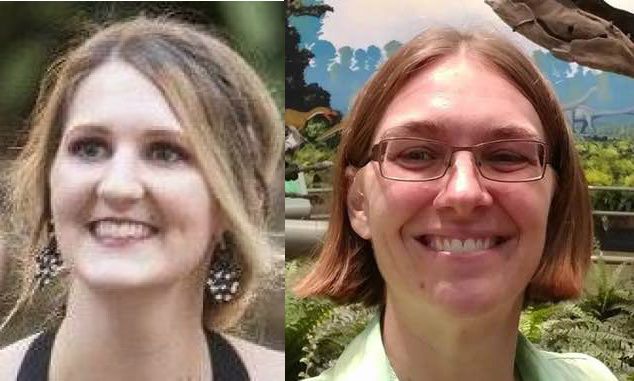Reginald Kimbro was convicted of two capital murders and four rapes across Texas.

A Plano man accused of killing two Dallas-area women after committing a string of rapes across the state was sentenced to life in prison Friday.
In a Tarrant County courtroom, Reginald Kimbro, 28, pleaded guilty to two capital murders for the April 2017 slayings of Molly Jane Matheson and Megan Getrum.
The trial for Matheson’s murder — in which Tarrant County prosecutors planned to seek the death penalty — was set to begin next week, after being delayed since 2020 because of the COVID-19 pandemic. Kimbro agreed to plead guilty in exchange for a sentence of life in prison without the possibility of parole.
“This plea allows the Matheson and Getrum families to finally hear him admit what he did and simultaneously ensures he cannot do it again,” Tarrant County prosecutor Page Simpson said in a written statement.
Via Zoom, Kimbro also pleaded guilty to raping three women in Collin County and a woman in South Texas’ Cameron County. Kimbro received sentences of 20 years for each rape in Collin County and life for the Cameron County case — the maximum allowed for the charges he faced.
Matheson’s mother said she was at peace with the sentence.
“My husband and I both realized a long time ago that what mattered most to us was a conviction of capital murder, and the punishment became sort of secondary,” Tracy Matheson said after the hearing. “What matters most is that he was convicted of capital murder and that he is being held accountable for the multiple sexual assaults that were committed prior to Molly’s death, and also being held accountable for the capital murder of Megan Getrum.”
Tracy Matheson discovered her daughter’s body in her Fort Worth apartment, about a block from Texas Christian University, on April 10, 2017. She had been raped and strangled, police said.
Matheson had been a student at the University of Arkansas. While there, she met Kimbro and the two briefly dated.

Kimbro previously told police Matheson invited him to her apartment the night of April 9, 2017, but he had denied killing her.
Prosecutors said Kimbro tried to destroy evidence by showering Matheson and washing clothes. He left a pair of his underwear in a load of laundry, prosecutors said.
While Fort Worth police were investigating Matheson’s murder, prosecutors said, Kimbro raped and strangled Getrum.
Getrum disappeared during an evening hike in Arbor Hills Nature Preserve, near her Plano home, on April 14, 2017. Her body was found the next day in Lake Ray Hubbard, 30 miles away in Dallas County. A sexual-assault exam found Kimbro’s DNA on her body.
Prosecutors do not believe Getrum knew Kimbro.
The case sparked “Molly Jane’s Law,” enacted in 2019, that requires all state law-enforcement agencies to enter information into an FBI national database for every sex offense they investigate in an effort to identify serial rapists.
Police investigating Matheson and Getrum’s slayings discovered Kimbro had been accused of, but not prosecuted for, rapes in 2012 and 2014.
In 2012, a woman in Plano accused Kimbro of throwing her to the ground and sexually assaulting her as he choked her. Police said he then ordered her to get into the trunk of his car.
She reported the incident to authorities, but Plano police didn’t file any charges against Kimbro at the time.
A woman who dated Kimbro told Plano police in 2014 that he liked to “strangle” her while they had sex. She “would then have to remove his hands away from her neck because he had ‘gone too far,’” an arrest-warrant affidavit said.
In 2014, police in South Padre Island arrested Kimbro after a woman said he raped and choked her. His DNA matched samples collected from the woman, but authorities didn’t pursue a case against him, Plano police wrote in their affidavit for the Getrum case.
After his arrest, more victims came forward and described being drugged, choked and raped by Kimbro, prosecutors said. Though they had not made reports to law enforcement, the women were prepared to testify at his trial, prosecutors said.
A survivor who spoke at Friday’s hearing recalled thinking “It could have been me” when she learned of Matheson’s death, according to the Fort Worth Star-Telegram. Matheson’s father hugged the woman and said he was proud of her.
Tracy Matheson said she was grateful the plea arrangement included an admission of guilt for survivors, whom she’s come to know and care for.
“There have been so many victims in this process who have been ignored and not believed for too long and they deserve justice, very much so,” she said.









